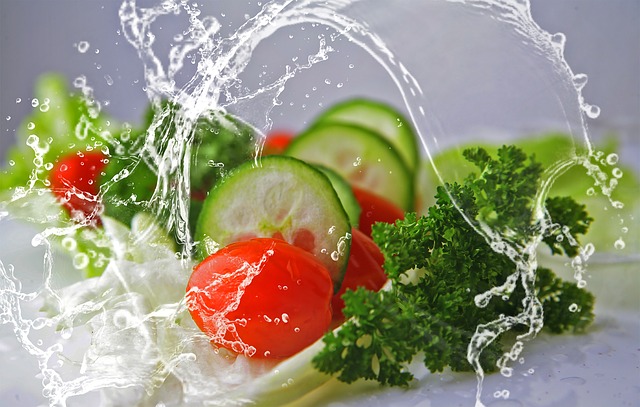Are you expecting a baby? Do you often give-in to your cravings? If so, then you have to be very careful. Though cravings are very common in pregnant women due to the hormonal changes, all the foods you wish to eat may not be healthy for your baby. A pregnant woman requires more folic acid, iron, calcium, and proteins than a woman who is not expecting because your baby gets the necessary nourishment to grow through you. You will also need an additional 350-500 calories during your second and third trimester.
A well-balanced diet is essential for a pregnant woman. Consumption of unhealthy foods may harm the development of your baby. It can also make your baby susceptible to various diseases in the future. Moreover, the unhealthy foods also increase your weight and may cause gestational diabetes and other complications during the delivery.
There will be a lot of people who give you advice on what to eat and what not to eat during your pregnancy. You have to understand that all these pieces of advice may not be good. Hence, you have to choose wisely so that you and your baby can remain healthy. If you are very confused about these foods, then I recommend you to read this article. Here, you will be able to find the healthiest foods for your baby which are recommended by the doctors all over the world.
The Best Foods to Eat During Your Pregnancy
- Protein-rich foods: Protein is very important for the growth of your baby. Hence, it is better to choose the food items with sufficient protein value in them. Some of the examples of protein-rich foods are meat, eggs, fish, beans, tofu, cheese, nuts, and peas.
- Dairy products: Dairy products contain the essential nutrients required for you, like calcium, proteins, magnesium, zinc, phosphorus, and B-vitamins. The most beneficial dairy products for pregnant women are yogurt and cheese. Having 3 to 4 servings of them in a day is considered to be very healthy for both the mother and the baby.
- Legumes: The foods that come under this category are lentils, peas, beans, chickpeas, soybeans, and peanuts. The legumes are considered to be very important for the mother and the child, especially during the first trimester. Legumes are rich in fiber, protein, iron, folate (vitamin B9), calcium, magnesium, and potassium. Insufficient amount of folate always results in neural tube defects and low birth weight of the baby. Hence, these foods should not be avoided at all.
- Sweet potatoes: Sweet potatoes contain beta-carotene, which gets converted into vitamin A in our body. This vitamin is essential for the growth as well as for the differentiation of the cells and tissues. They also will satiate your appetite and helps to maintain your blood sugar levels.
- Eggs: Eggs are rich in choline, which is essential for the brain development of your baby. They contain several vitamins, minerals, proteins, and fat. Though eggs are recommended for the pregnant women, you should not have raw, undercooked or soft boiled eggs and also the foods containing raw eggs such as ice creams, desserts, custards, etc. Pasteurized eggs are considered to be healthy for the pregnant women. You can also eat well-cooked omelets and eggs with firm yolks.
- Whole Grains: Whole grains are rich in iron, vitamin B, and fiber. Hence, the foods like oatmeal, whole-wheat pasta or bread, and brown rice must be consumed for the proper growth of your baby.
- Fruits and Vegetables: Fruits and vegetables contain iron, fiber, vitamins, and minerals. They can be the perfect snack for pregnant women. Leafy vegetables are also rich in anti-oxidants which help in the digestion and also enhances the immune system. Berries are also very beneficial as they contain vitamin C which is necessary for the skin health and immunity of the baby and the mother.
- Fish Liver Oil: Women who do not eat seafood are often found to be deficient in vitamin D. Fish liver oil made from the oily liver of fish like cod, helps in maintaining your vitamin D levels. The oil is also rich in the omega-3 fatty acids EPA and DHA, which are very important for the fetal brain and eye developments.
- Water: Problems like urinary tract infections and constipation are common in pregnant women. This can be cured by keeping your body completely hydrated. Around 2 liters of water is recommended for all pregnant women. Mild dehydration can also cause problems, like headaches, anxiety, mood swings, and reduced memory.
The Foods to be avoided during your Pregnancy
Fish: Not all types of fish are healthy for pregnant women. Fishes like white tuna, shark, mackerel, and swordfish contain very high-mercury levels in them. Thus, consumption of these foods can hamper the brain development of your baby.
Caffeine: Though some of the doctors allow the consumption of caffeine in moderate amounts up to about 200mg per day, the various other studies conducted show that caffeine can cause miscarriages in pregnant women. Hence, it is better to avoid them completely during your first trimester. Caffeine, being a diuretic eliminates the fluids from the body and hence, can result in dehydration and calcium deficiency.
Alcohol: Alcohol is to be strictly avoided during both your pregnancy as well as breastfeeding. Alcohol can hamper the development of the fetus and also causes various disorders like fetal alcohol syndrome.
Smoked seafood and deli meat: These foods are known to be contaminated with the bacteria called, Listeria which can induce miscarriages. Hence, it must be strictly avoided by pregnant women.
There are various other foods which can be beneficial or harmful to pregnant women. Hence, it is better to consult with your doctors before giving in to your cravings. Pregnancy has to be treated with utmost care, as whatever you do and consume will have direct effects on your baby. In short, the health of you and your baby depends on the foods you eat.

